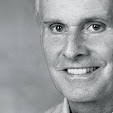Incremental Vrs Systemic Change: A message to Chicago's Foundations.
Setting this graphic next to your list of 2014 awardees, I can only think that MacArthur has its priorities wrong: that its finger is more on the pulse of an American cultural elite than that of the nation itself. I know you won't agree. At your website, you proudly assert that four of this year's 22 genius have been active in
Designing new strategies to address persistent social challenges such as securing fair and affordable housing (John Henneberger), protecting civil rights (Mary L. Bonauto), and ensuring equal access to justice for both the victims of crime (Sarah Deer) and the accused (Jonathan Rapping);Given America's precipitous decline at home and abroad, four "persistent social challenge" awardees out of 22 is not enough. Year after year MacArthur gives its genius awards to like the four named above, but guess what: nothing changes. America's criminal justice system remains broken. Poor people can find affordable housing. And new, completely unforeseen threats arise to the civil rights of Americans everywhere.
And arguably, things only get worse. With each election America's political system becomes more money-driven and dysfunctional at local, state and national levels. This year's four social challenge awardees are surely brilliant, dedicated, deserving people. But I dare say that they themselves would agree that their work was never intended, in and of itself, to do what America needs most: to restore functionality to its political decision making process.
Fact is that dozens of geniuses overlooked by MacArthur are devoting their lives to this end. So what keeps MacArthur from acknowledging them? Could it be that its rigid adherence to the principle of incremental change prevents it from attending to and rewarding proponents of the systemic change that alone will restore functionality to American governments?
The spirit of incrementalism is commonly expressed in the saying that the best way way to eat an elephant is one bite at a time. It's gospel among Chicago foundations. I recall my stomach turning first time I heard it years ago. Who, I thought, wants to eat an elephant in the first place?
Designing new strategies to address persistent social challenges such as securing fair and affordable housing (John Henneberger), protecting civil rights (Mary L. Bonauto), and ensuring equal access to justice for both the victims of crime (Sarah Deer) and the accused (Jonathan Rapping); - See more at:
And arguably, things only get worse. America's political system becomes more dysfunctional at local, state and national levels with each election. This year's four social challenge awardees are doubtless brilliant, dedicated, deserving people. But I dare say that they themselves would readily agree that their work was never intended, in and of itself, to do what America needs most: to restore functionality to its political decision making process.
In fact dozens of geniuses overlooked by MacArthur are devoting their lives to this end. So what keeps MacArthur from acknowledging them? Could it be an addiction to the principle of incremental change that keeps America's foundations from supporting geniuses who dedicate themselves to the systemic change that alone will restore functionality to American government?
The spirit of incrementalism is commonly expressed in the notion that the best way way to eat an elephant is one bite at a time. This saying is gospel among Chicago foundations. I recall my stomach turning first time I heard it many years ago. Who, I thought, wants to eat an elephant in the first place?
 |
| Poor beast. Are large (systemic) problems things to be eaten . . . or solved? |
All this will change only when foundations see wisdom of identifying and supporting competent proponents of systemic change. Using the foundation-approved image of the bitten elephant, one might say that things will change for the better only when foundations embrace the holistic and systemic principle that the best way to support (not eat) an elephant is to connect it with other elephants.
For two reasons this idea stands up under scrutiny. Consider, first, that elephants are closely connected herd animals. And second, bear in mind that students of media since Marshall McLuhan have correctly predicted that electronic communications technologies are rapidly "retribalizing the human race" and creating a global village in which everyone is always in touch with everyone else. (The deeper we go into the age of electronic media, the closer we come to mother Africa).
So who in Chicago is working to connect all Chicagoans (including City Hall) to turn the corner on youth violence? As I will be arguing in a later post, I see the Tribune's New Plan of Chicago as taking a big if imperfect step in this direction. Also, the Strengthening Chicago's Youth (SCY) Program at Lurie Childrens' Hospital has assembled a list of several hundred non-profits, academic institutions, foundations, businesses and government agencies that collectively are actively addressing virtually all of the complex set of factors that contribute to youth violence.
What's needed, as I see it, are communications platforms that enable these entities to connect with each other and with the people of Chicago, especially young people. Dan Bassill's work at the Tutor/Mentor Institute, described in my September 22 post, below, comes closest to providing such a platform.
Labels: Chicago, Chicago Foundations, Dan Bassill, John Henneberger, Jonathan Rapping, MacArthur Foundation, Mary L. Bonauto, Sarah Deer, SCY, Strenthening Chicago's Youth, Tutor Mentor Institute












